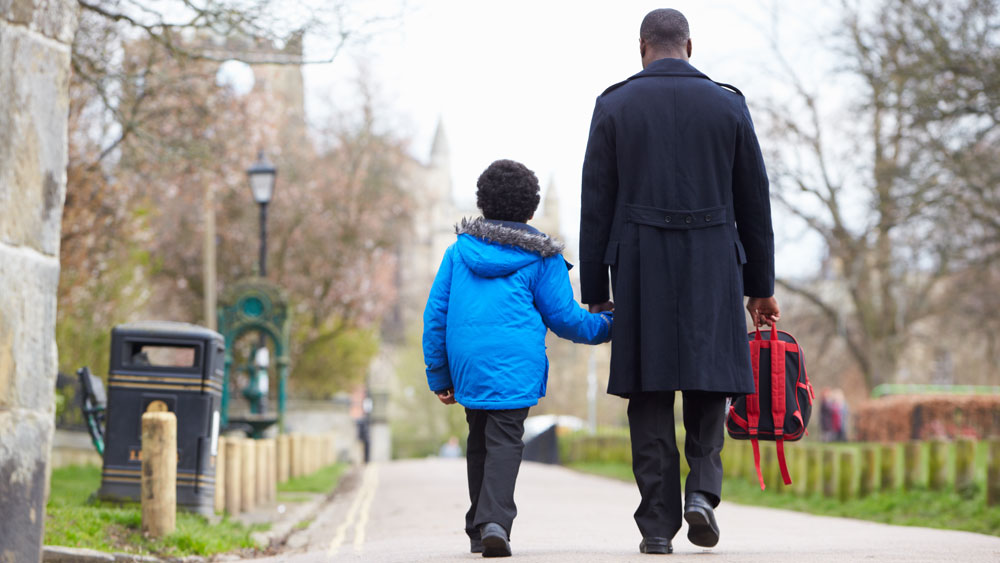Five Ways To Get Your Kids Talking After School
Learning to have great conversations with your child can set them up for lifelong happiness, according to these clinical psychologists

Jane Gilmour and Bettina Hohnen are clinical psychologists and academics with a specialist interest in neuropsychology. Their new book, How to Have Incredible Conversations With Your Child (£14.99, Jessica Kingsley) is out now. In this exclusive contributed article, they suggest ways to spark incredible conversations after school.
Strong relationships are built on good conversation skills, and they’re also linked to lifelong mental and physical wellness, so get them high on your parenting to-do list. To get good at anything, whether that’s holding a plank, learning a language or developing conversation skills with your child, you need to practise it and use good technique.
As with anything, your first attempt is not likely to be your best. There will be bumps in the road and some conversations will feel like hard work. But with persistence and patience you and your child will enjoy the benefits of great communication, and – most importantly – this will help your child form positive relationships throughout their life.
We’ve focused on school pick-up here because, according to attachment theory (a key child development framework), a sensitively managed reunion like school pick-up can strengthen family bonds. These five tips will help bring out the incredible in the conversations you have with your child, build your relationship and set them on a lifelong trajectory of wellness.
1. Read The Room
You might be hoping for a list of good questions to ask your child but the secret to great conversation is being able to read the room. Strong evidence shows that reading our child’s emotional state is one of the most important parenting skills, so the first question we are going to suggest is one that you should ask yourself. As your child emerges from the school gates, read their body language and facial expression, and ask yourself what they need. Some kids are talkers, but others need to decompress for a bit at first and if that’s the case, one of the greatest bonding strategies for school pick-up is to let them be and wait a bit before you talk.
2. Name It
If, on the other hand, your child comes out the school gates full of emotion, perhaps angry and shouty, name what you see. There is strong neuroscientific evidence showing that simply naming an emotion can mean distress will settle more quickly (we can see this happen in MRI brain imaging scans). Only when they are calm will they be able to engage in the to and fro of conversation, reflect and think in a meaningful way.
So, let’s say you now have a calm kid ready for a conversation on your hands. What now?
Get the Coach Newsletter
Sign up for workout ideas, training advice, reviews of the latest gear and more.
3. Start Talking
A good tip is to tell your children about your day. That way you are modelling the very conversation skills we want your child to learn. Social Learning Theory consistently shows that watching how parents interact with the world is one of the most powerful teaching techniques for children, so you should try to share at pick-up too. Tell a story or a memory they have never heard before because there is nothing more tantalising than stories about parents which have been previously embargoed.
See related
- How To Get Three Portions Of Fruit And Veg In Your Child’s Packed Lunch
- How To Support Your Child’s Mental Health During The Pandemic
- How To Limit Your Kids’ Screen Time Without Provoking Massive Tantrums
4. Talk About The Hard Stuff Too
If your child has had a bad day, listen and remain calm (otherwise they might shut down and stop talking). We know that the capability to understand negative emotions is key to lifelong wellbeing, because if we don’t articulate these feelings they may lead to mental health concerns in the future, so let your kids talk about the hard stuff. If you’ve had a bad day, talk about it too. Think about what you are teaching them here: your message is that we discuss and figure out our struggles together. Incidentally, do also share your triumphs and feelgood stories – it’s all about balance. If you show them that talking about difficult experiences is on the agenda, it means they will share their tough stuff, because they have learned through lived experience that it’s OK to share anything.
5. Get Creative
Primary school children in particular find the abstract concepts in conversation pretty challenging. Their stage of cognitive development means that ideas are best expressed using real things as vehicles of expression, like drawing on a line to show how good something is – one end of the line is the best ever and the other end is the worst. You don’t need fancy materials or even to be sitting down; in fact, we would recommend talking when you are on the move. Small changes on the line can show minor changes in feelings that are very difficult to express in words for younger children, but are very much felt nonetheless. You can use a line in a sandpit or the condensation on the car window but try to make it real, because that helps your child both express themselves and understand concepts with much finer gradations without the need for a nuanced vocabulary.
If you need some more inspiration, our new book How To Have Incredible Conversations With Your Child includes lots of carefully scaffolded conversation topics that cover four points of the wellbeing compass: Who are you? How are you? What helps you? And what gets in the way?
Visit Gilmour and Hohnen’s Instagram page @incredibleconversation for more advice.

Camilla Artault is a writer and keen runner. She has covered women’s running gear – testing leggings, jackets, running bras, tops and shorts – for Coach since 2018, as well as interviewing experts and writing about a range of health and lifestyle topics.
